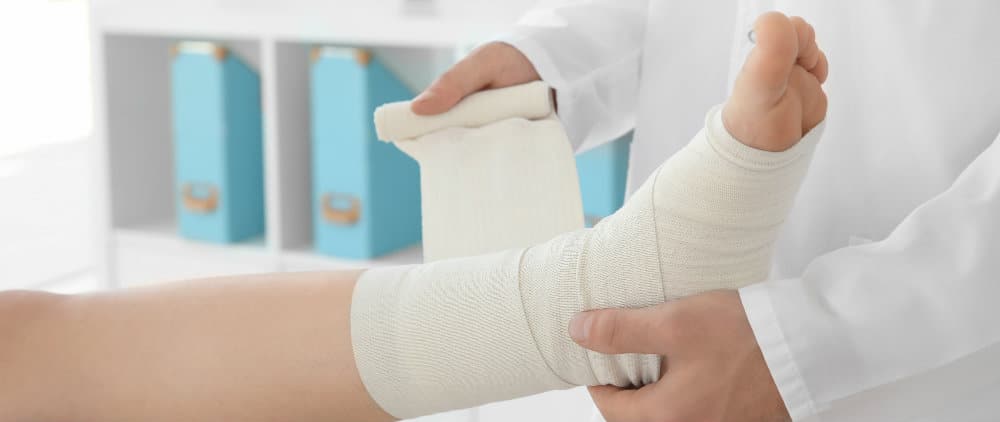Do I Need Wound Care for My Foot?
Let’s get straight to the point.
Do you have an open wound on your foot—especially one that is deep, swollen, or hot to the touch? Do you have either diabetes or any other condition that can affect the strength of the circulation to your lower limbs?
If you can answer both of those questions with a “yes,” then you need care—at the very least, you need to take aggressive, specific steps to bring about healing as quickly as possible. Even small ulcers can worsen rapidly and severely threaten your long-term health or quality of life.
Please call us immediately at (305) 514-0404. We will get you in as soon as we possibly can. In the meantime, flush out the wound with clean, running water (no other chemicals or creams) and cover with a bandage until we can see you.
If you’d like to learn more about why this is so important, by all means read on.
Why Diabetic Wounds Happen
Wounds are an unfortunately all-too-common result of a pair of typical diabetic foot complications: neuropathy and poor circulation.
Neuropathy is another way of saying “your nerves have been damaged,” usually due to insufficient oxygen and too much sugar in the bloodstream. If neuropathy affects the delicate sensory nerves of the feet (which it often does), you might be unable to feel injuries—even ones that produce ulcers.
At the same time, poor circulation prevents the fresh wound from getting the oxygen or nutrients it needs to repair itself, or the immune response it needs to fight off germs. As a result, the wound gets worse and worse, and may become infected, possibly without you even really noticing.
Why You DEFINITELY Shouldn’t Wait For Treatment
Some of the worst diabetic wounds can come from the most minor of injuries. Even something as seemingly inconsequential as a popped blister or small cut can produce catastrophic results if it is allowed to fester.
What do we mean by catastrophic?
- Diabetic wounds are, by far, the biggest single non-traumatic cause of amputations in the United States. About 100,000 Americans will have to have at least part of a foot or leg removed this year after a diabetic wound got out of control. And 85% of major amputations performed on people with diabetes start with a foot wound.
- According to some recent studies, the five-year mortality rate after a first-time diabetic wound is nearly 50%. After a major amputation, it may be as high as 75%. That means the link between diabetic wounds and death is even strongerthan, for example, breast, colon, or prostate cancer.
In other words? If you have diabetes, there’s no such thing as a “minor” foot wound.
That doesn’t mean that every simple cut or scrape will require casting or hospitalization, of course. These can still usually be addressed at home if you act quickly to clean, disinfect, and bandage the cut.
But it does mean that you should check your feet carefully every single day and take every injury seriously. Contact us (or your primary care physician) immediately if you spot something that isn’t healing or getting worse so we can follow-up.
The consequences of failing to do this are just too high.
Why You Should See Omega Medical Group for Wound Care
At Omega Medical Group (OMG), we take a comprehensive and multi-disciplinary approach to wound care—with the focus always on ensuring your long-health and wellbeing—physical, mental, emotional—to the best of our ability.
Effective wound care can really be the difference between many more years of active living on the one hand, and a life-limiting amputation on the other.
Thanks to our diverse range of specialties and skills, we are extremely well equipped to not only treat your wound and greatly reduce your infection or amputation risk, but also compassionately teach you how to take better care of your feet and better manage your condition. This in turn reduces your long-term risk of future wounds and helps improve your whole-body quality of life.
Do not allow a foot wound to turn your life upside down. Get the help you need, as quickly as possible, from Omega Medical Group. To schedule an appointment at either of our Miami-area locations, please call (305) 514-0404 today.


